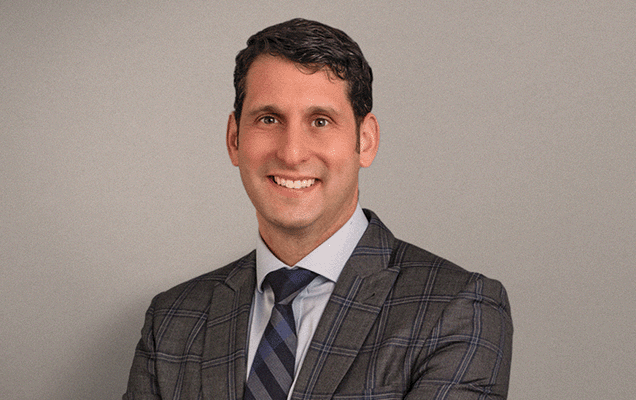What is Minimally Lumbar Invasive Microdiscectomy?
Minimally invasive lumbar microdiscectomy is a relatively new surgical procedure. The procedure is used by spine surgeons to relieve pain and help you return to your full active lifestyle if you have sciatica or a pinched nerve in your spine.
Sciatica is a painful condition where a portion of the shock absorber between the vertebrae in your back moves out of place and into your spinal canal. This disc material contacts the spinal nerve root which causes severe radiating leg pain.
When this happens, it is known as a disc herniation. The piece of herniated lumbar disc is known as a disc fragment. Pain caused by sciatica can make walking and other day to day activities very difficult and interfere with your quality of life.
The minimally invasive microdiscectomy is a surgical procedure where your spine surgeon makes a small incision in your back.
Specialized instruments are then introduced into your back to help remove the disc fragment that is pressing against your spinal nerve. Once your spine surgeon removes the piece of disc and decompresses your nerve, the instruments are removed and the tiny incision is repaired.
Benefits of a Minimally Invasive Lumbar Microdiscectomy include:
- Small incision
- Faster recovery time
- Minimal injury to your spinal muscles
- Minimal blood loss
- Less pain
By using minimally invasive techniques to decompress your spinal nerve, your doctor will be able to make a smaller incision and cause less disruption to spinal muscles.
Patients are usually able to go home the same day, and require minimal pain medicine after surgery.
This means less pain and a faster recovery time so you can quickly return to your normal, active lifestyle.
Recovery after Minimally Invasive Lumbar Microdiscectomy
The minimally invasive lumbar microdiscectomy procedure takes place in a hospital or surgery center.
Most patients return home the same day, just hours after the procedure. Leg pain usually starts to improve immediately after surgery.
Recovery times will vary based on your specific condition but most patients can expect to be up and about immediately after surgery. Many people can expect to return to normal light activities and non-physical work within a week of the procedure.
Physical therapy is also very helpful in regaining strength and range of motion after surgery.
Your doctor may tell you to avoid heavy lifting for 4 to 6 weeks after surgery. If your job requires physical labor or heavy lifting, you may need to temporarily return to work on light duty.
Every patient and case are different and most patients are able to return to work with few restrictions.
Most active, healthy, individuals find that recovery after a minimally invasive lumbar microdiscectomy surgery is simple and many people return to their normal activities within a few weeks after the surgery.
It's time to get back to doing what you love.
Risks of Minimally Invasive Lumbar Microdiscectomy
Although this is a relatively low-risk surgery, no surgery is risk free. A small portion of patients may experience potential complications such as:
- Infection
- Bleeding
- Spinal fluid leak
- Nerve irritation or, even more rarely injury
- General anesthesia complications
These complications are rare, and your doctor will take time to help you understand them before your surgery.
The risks associated with minimally invasive lumbar microdiscectomy are no different than in standard spine procedures, but there is a much lower risk of infection with minimally invasive surgery.
Additionally, it is important to understand that no surgery works perfectly.
Sometimes surgery fails to relieve some or all of a patient’s symptoms. This is often because of nerve damage that has already occurred prior to surgery.
Is Minimally Invasive Lumbar Microdiscectomy Right for Me?
If you suffer from severe back and leg pain caused by a pinched nerve from a lumbar herniated disc, and other non-surgical treatments like physical therapy or medication have not improved your pain, minimally invasive lumbar discectomy may be a great option for you.
If pain is interrupting your day to day life or prevents you from enjoying work, athletics, or time with friends and family, your doctor may recommend a minimally invasive lumbar microdiscectomy.
Minimally invasive lumbar microdiscectomy is a safe procedure with minimal risks and excellent benefits when compared to standard spine surgery. It can offer a rapid return to your previous lifestyle including return to work and high level athletics.
There is no need to suffer in pain.
Contact our office and schedule a consultation with one of our top rated surgeons.
We can help you learn more about the minimally invasive lumbar microdiscectomy procedure and decide if it is the right treatment for your leg and back pain.

About Dr. Seth Grossman
Dr. Seth Grossman is a board-certified, fellowship-trained orthopaedic spine surgeon. He has been involved in clinical research throughout his medical training and has been published in several peer-reviewed journals. Dr. Grossman prides himself on first exhausting all non-surgical treatment options. When surgery is necessary, he employs surgical techniques that will achieve the best results for his patients while causing the least amount of pain and allowing the fastest recovery possible. He is passionate about combining medicine and technology. He specializes in robotically assisted spine surgery, disc replacement surgery, and minimally invasive techniques for both spinal decompression and spinal fusion surgery.
